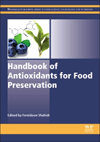To limit the amount of added sugar allowed in the food supply, two medical doctors propose using a cap-and-trade policy, similar to that used for environmental pollutants.
Kristina Lewis with the Kaiser Center for Health Research and Sanjay Basu of Stanford University published a study that evaluates how cap and trade might impact caloric consumption and obesity rates, compared to other measures such as taxes on sugar or sugar-sweetened beverages.
The study was announced in a press release from The Obesity Society in conjunction with ObesityWeek, a conference on obesity held in Boston in November.
“Cap and trade works by setting an overall limit on the ‘emissions’ of a ‘pollutant’ – in this case, added sugars, and then letting manufacturers in the marketplace decide amongst themselves whether to reformulate their products or buy/sell permits to ‘emit,’” said Dr. Lewis.
To conduct the study, the researchers examined data on the nutritional content of food and a nationally representative data set of what Americans eat. They then determined the likely impact of a sugar cap-and-trade policy using mathematical modeling.
“We found that a cap-and-trade policy that would gradually reduce added sugar in the food supply by 1% per year over 20 years could significantly reduce obesity and type 2 diabetes,” said Dr. Lewis. “Financially, this cap and trade policy has the potential to avert about $9.7 billion in healthcare spending, and may produce larger health impacts than taxing added sugars or sugar-sweetened beverages.”







